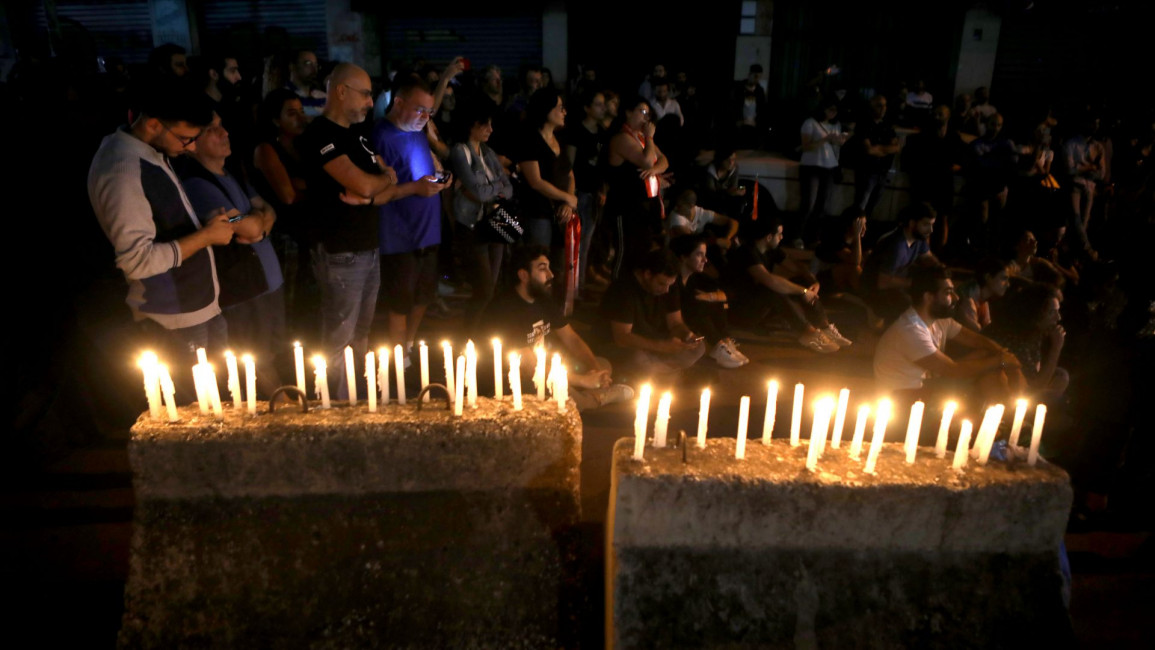Lebanon faces days of darkness as generator owners threaten shut-off in fuel price row
Members of the association gathered outside the energy ministry building in Beirut on Monday for a sit-in, in a last minute bid to see the government respond to its demands for a supply of fuel fixed at the official exchange rate.
If authorities fail to meet these demands by the end of Monday, owners say they will turn off their generators and plunge the country into darknesss, the head of the association told The New Arab's Arabic-language sister site.
While the association initially agreed to only shut off their generators on 5 August, it was later decided to bring the blackout deadline forward to 28 July, association head Abdo Saadeh said.
A total shutdown of the country's generators would see Lebanon - already witnessing electricity cuts for most of the day - plunged into a nationwide power outage.
Exacerbated by the coronavirus pandemic, Lebanon's economic crisis has seen the local pound plummet to record lows on the black market, sparking rapid price hikes and forcing thousands of Lebanese into poverty.
The currency collapse and concurrent dollar shortage have dramatically impacted on Beirut's ability to import goods, including fuel which is subsidised by the government.
Dwindling fuel supplies led both the state-owned electricity company and the powerful network of generator owners to ration electricity late last month. Private generators fill the gaps in incomplete national grid.
|
|
While Lebanese are already familiar with daily power cuts, the widespread blackouts now last up to 22 hours a day.
The electricity crisis has even impacted Lebanon's Covid-19 response, with the country's main coronavirus treatment center forced to shutter some operation rooms and cut off air-conditioning in some parts of the hospital.
"Lebanon's electricity policy has been inefficient and ineffective for decades — always on the brink of collapse, but staying afloat with last minute patchwork solutions," said Kareem Chehayeb, a Lebanese journalist and Nonresident Fellow at Washington-based Tahrir Institute for Middle East Policy.
"The economic crisis has made fuel imports more expensive causing a shortage, with external generator providers hiking their prices or seeking business in neighboring Syria," Chehayeb told The Associated Press earlier this month.
"It is a wake-up call to decades of overspending and poor planning of a basic public service."
Follow us on Facebook, Twitter and Instagram to stay connected



![Squad incumbent Summer Lee has won her district's Democratic primary. [Brooke Anderson/The New Arab]](/sites/default/files/styles/image_330x185/public/2024-04/413898031_1041031157158522_8195934720767720634_n%20%283%29.jpg?h=ff8c3fa3&itok=75Sx6fbL)